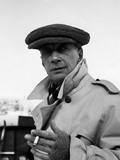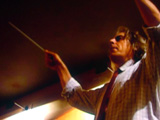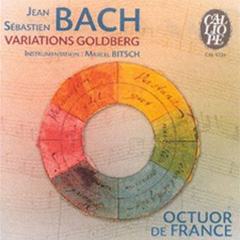The New Gentlemen

- Production : France, 1929
- Length : 120 min
- Orchestration : n.c.
Jacques Feyder and politics
or Politically incorrect
by Pierre-Henri Deleau
Light comedies never are short of strength when they rely on an acute observation of society’s customs or politics. This is the case for “The New Gentlemen » by Robert de Flers and Francis Croisset, a satire of parliamentary attitudes during the third Republic.
First created on stage in 1925, the play was very successful but was immediately banned when adapted for the screen in 1928 by Jacques Feyder as it was considered an “attack on the dignity of Ministers and the Parliament ». The filmmaker, had, it is true, taken some malicious pleasure in giving his actor the appearance of the President of the “Chambre des Députés”. Many interventions, including Mary Marquet’s visit to the Home Secretary, André Tardieu, were necessary before the film, still with some cuts, could be presented 5 months later, in 1929. The film is then a scathing political attack of that time; 80 years later, it has lost nothing of its comical force and its impertinent relevance. Have a look at the sequence of the nearly farcical opening of a workers’ housing estate or, even more surrealist, that of the house of parliament being invaded by the opera ballet dancers: Mocky before Mocky!
As a matter of fact, by offering a truthful and faithful caricature of political use at that time, Jacques Feyder created a premonitory work and we are so pleased and concerned to discover how topical it still is!
The Director :
Jacques Feyder
 Jacques Feyder : A French film-maker of Belgian origins, born under the name of Jacques Frédérix in 1885. His family intended him to follow a military career, but he changed his name and chose first, the theater, and then the cinema in 1912. He debuted as a director with Gaumont in 1915. L’Atlantide brought him international fame in 1921. Thus started a cosmopolitan career with many ups and downs and films made in the studios of Paris, Vienna, Berlin, Munich, Los Angeles and London.
Jacques Feyder : A French film-maker of Belgian origins, born under the name of Jacques Frédérix in 1885. His family intended him to follow a military career, but he changed his name and chose first, the theater, and then the cinema in 1912. He debuted as a director with Gaumont in 1915. L’Atlantide brought him international fame in 1921. Thus started a cosmopolitan career with many ups and downs and films made in the studios of Paris, Vienna, Berlin, Munich, Los Angeles and London.
Returning to Paris from a disappointing stay in Hollywood, he found new inspiration with a series of films starring his talented wife, Françoise Rosay : Le Grand jeu (1934), Pension Mimosas and the famous Carnival in Flanders (1935). He died in Switzerland in 1948.
The Composer :
Antonio Coppola
 During the last 25 years, Antonio Coppola has written numerous scores for silent movies. Today, he is considered to be one of the most knowledgeable and experienced musicians in this very specialised field.
During the last 25 years, Antonio Coppola has written numerous scores for silent movies. Today, he is considered to be one of the most knowledgeable and experienced musicians in this very specialised field.
Born in Rome in 1956, he studied piano, composition and conducting at the Santa Cecilia Conservatory. In 1973, he started work as a pianist for theatrical productions and contemporary dance. When in 1975 he accompanied a silent movie on the piano for the first time, he immediately decided to cease his other musical activities and devote himself to this. Since 1975, he has been invited to play at hundreds of silent movie projections in hundreds of cinemas throughout Italy, France, Germany, the USA, Brazil, Argentina, Spain, Greece and England.
He has given courses on the musical accompaniment of silent movies in numerous universities in Europe and throughout the world.
 English
English Français
Français











